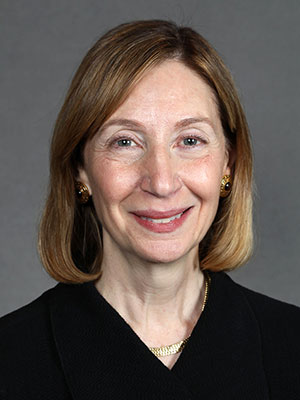As the 2019 ACR/ARP Annual Meeting came to a close, work had already started on reimagining and transforming the event for 2020 and beyond.

The result was ACR Convergence 2020. But a new name and fresh look were just the beginning. New session formats, including some done as pilot projects at last year’s annual meeting, led the way as the entire program was re-examined to deliver even more information and engagement.
Just when many of the details were coming into focus, a global pandemic changed the world’s premiere rheumatology gathering into a completely online event.
“In the future, 2020 will be viewed as the year education in rheumatology was transformed. I hope you will make plans to join us at this unique time in history,” said ACR President Ellen M. Gravallese, MD.
Registration is open for the all-virtual and interactive ACR Convergence 2020. Once registered, you’ll discover firsthand how the Annual Meeting Planning Committee (AMPC), ACR leadership, and ACR staff have collaborated to reimagine all aspects of the meeting. ACR Convergence 2020 planners have created a meeting that will deliver the highest-quality educational content in a way that encourages everyone to participate and learn, with the shared goal of improving patient care.
ACR Convergence 2020 highlights include:
- A live presentation by Anthony S. Fauci, MD, ACR Master and director of the National Institute of Allergy and Infectious Diseases (NIAID), on Saturday, Nov. 7, at 4 p.m. EST. Dr. Fauci delivered the 2017 ACR Keynote Lecture on vaccine development during epidemics.
- Between the educational sessions, participants will have the opportunity to access Community Hubs, a new feature that allows attendees to connect with experts and peers who share the same research or clinical interests. Leaders in each respective field will host each hub, which will include a combination of formal and informal networking opportunities, including Study Groups.
- Poster presentations will take place Nov. 6-9. Presenters will deliver short audio recordings and be available to engage with virtual meeting attendees at scheduled presentation times or through private meetings.
- The popular premeeting courses will be back for 2020, but reworked as extended programming after the meeting concludes. The Review Course, 2020 Practice Management and Coding Update, and Radiology Bootcamp will be held on Tuesday, Nov. 10, and the Basic Research Conference, titled Rheumatology in the Molecular Dimension: Insights from Single-Cell and -Omics Technology, and the Clinical Research Conference, titled Optimizing RCTs in Rheumatology: Past, Present and Future, will be held on Saturday, Nov. 21.
The full schedule of more than 120 educational sessions over four days starts Friday, Nov. 6. The schedule will be divided into two three-hour blocks, one from 10 a.m. – 1 p.m. EST and one from 3 p.m. – 6 p.m. EST.
Session content will be available on demand following the live sessions, so attendees can watch sessions at their convenience, even after the meeting ends, until March 11, 2021.
The meeting kicks off with the Opening Session on Thursday, Nov. 5, at 2 p.m. EST, with:
- A keynote lecture from Eric Rubin, MD, editor in chief of The New England Journal of Medicine, giving his perspective on the SARS-CoV-2 pandemic.
- Dr. Gravallese’s Presidential Address.
- Recognition of the ACR’s Gold Medal Award recipient.
- The Year in Review session. Jinoos Yazdany, MD, MPH, and Richard J. Bucala, MD, PhD, will assess the biggest rheumatology news from both the basic science and clinical worlds.
More details will come soon, so make sure to visit the official meeting website or ACRConvergencetoday.org for the latest news, including information about the virtual Exhibits and additional special events.
